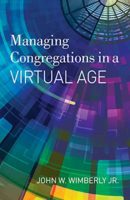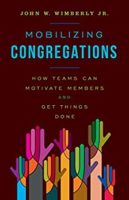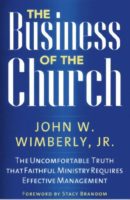
As congregations start to emerge from the pandemic, a top priority is to re-establish a sense of belonging and community.
A friend of mine in Colorado says his current challenge is to reestablish “high touch” ministry. For the past two years, Hal and his staff have focused on “high tech.” They had to master technologies and related managerial strategies they never had imagined needing: livestreaming, Zoom meetings, virtually maintaining a sense of team in a staff, etc. Within the constraints of the pandemic, they struggled to remain in touch and engaged with their members. It was challenging at best. They kept up with pastoral care, but other ways of staying in touch with members often were not possible.
A friend in North Carolina puts it this way: “We lost the secret sauce of ministry during the pandemic.” To Jerry, the secret sauce is hugging, crying, laughing, singing and being with members. During the pandemic, literal high touch was not a possibility. Touching was dramatically limited, and at times eliminated.
Yet another friend, in DC, says that what has always brought people to and kept them in the church she serves is a strong sense of community. Members supported each other in personal pain and stress, worked for justice, cared for the marginalized, and worshipped—together. Forced apart during the pandemic, they emerged from the crisis still a community, but more fragmented than whole, more disconnected than connected in some ways. Laura says her ministry today is focused on helping people reconnect with one another.
While clergy are identifying the need to rebuild the connections between their congregation and members as well as between members, I hear great anxiety about whether those connections, frayed during the pandemic, can be re-established. As Carey Nieuwhof said in a recent post, “The competitive advantage of the local church isn’t content, it’s community and connection. Every church should be running to fill that hole.”
The Challenges
Some members are still unwilling to expose themselves to the Covid virus and will not attend worship, adult education classes, or social events. This kind of wariness may well outlive the Covid epidemic.
Other members have learned they can live without the interpersonal connections they had at church. This is hard to accept, but survey data suggest that for many people, online worship is “equal or superior to the in-person experience.” We treasure our members and want to reconnect with them. Some seem not to restore pre-pandemic relationships through their congregations. Painful.
Yet other members want to reestablish a sense of community but have become comfortable worshipping and attending meetings and classes online. To them convenience seems to outweigh the need for in-person community. Will that continue as the months and years pass by? No one knows—but reconnecting people is a priority for every congregation. Here are two ways this might be done:
Building Online Communities
My sister tells me how her Bible study, filled with folks over the age of 70, love their group even though it is now virtual. She is moving out of the area and but plans to continue with the group. Some of my clients report that their youth groups have strengthened as youth have developed strong connections virtually.
Millennials and Gen Zers (51% of the US population), among others, have mastered the art of creating strong bonds with peers around social justice, music, and other shared interests. They don’t always feel a need to meet in physical space. People who work in international corporations feel a strong sense of community with people they have never met in person. We shouldn’t assume that the only way to reconnect is person-to-person. We live in a hybrid world—we can do both virtual and physical.
In one congregation, the minister plans to expand the online community that has developed around live-streamed worship. She thinks that community may have even more growth potential than the congregation that shows up for worship in person. Hers is an entrepreneurial response to the realities that have emerged during the pandemic.
Rebuilding Person-to-Person Relationships
Rebuilding person-to-person relationships will require creative and persistent work. But opportunities abound. Most people have not lost their taste for the “secret sauce of ministry.” They want and need to feel that they belong, to care for others, to be cared for, and to work on projects that will make a difference in their communities.
Relationships took many years or decades to create in congregations—rebuilding them will not take place in a short time. It can help to create some simple metrics to help evaluate your progress on this important ministry task. What is a reasonable, measurable outcome that can occur between now and New Year’s Day? What progress could we expect to see between New Year’s and next Labor Day? Without metrics, the task of recreating community will feel overwhelming—we will see only baby steps, forgetting that baby steps lead to adulthood.
I don’t buy the theory that we are in completely uncharted waters. The primary functions of a congregation of people who share a faith in God remain the same. We still worship, learn, serve, and care for each other. We know how to do these things—Christians have been doing them in various ways for more than two thousand years. Jewish folks have done it even longer. How we do them changes. But the core remains the same.
It is discouraging to have to start over in so many areas of our ministries. We have worked so hard to build supportive, loving communities. But we can learn from people who lose their homes in fires or storms: after they assess and grieve the damage they begin the process of rebuilding. May God be with and help us as we reconnect and rebuild our wonderful communities. It is what we do and who we are.
John Wimberly is an experienced pastor and consultant. As a consultant, he has worked with congregations and judicatories on strategic planning, staff designs for the 21st century, and congregational growth as well as financial and administrative management. He has MBA, MDiv, and PhD (theology) degrees. His books focus on effective management and leadership. John believes congregations can have a bright future!



